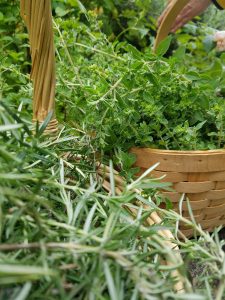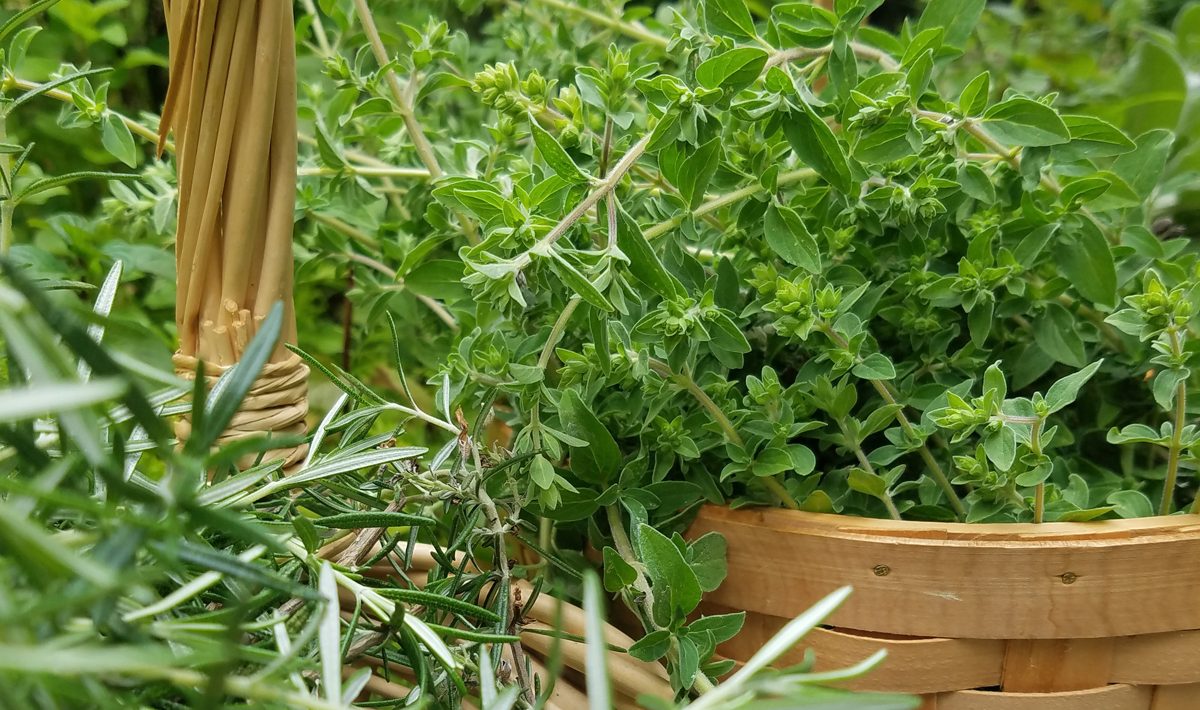By ANNA MARIE BEAUCHEMIN
Martinez News-Gazette Columnist
If you’re anything like me you’ve already hit your budget for this year’s garden, but in the off-chance that you haven’t (or just can’t say no to adding more), I wanted to send you off to the plant store with a list of some of my favorite garden herbs. The herbs featured below are easy to grow, act as a staple in most culinary dishes, and also happen to be five of our most coveted plant allies.
5 Medicinal Herbs You’ll Want To Consider Growing This Year
Mint (Mentha spicata or M. piperita)
I have both Spearmint (Mentha spicata) and Peppermint (Mentha piperita) in my yard, but if you’re short on space you can easily plant just one as they both have similar properties. This classic cooling herb makes an excellent iced tea when it’s hot out, adds a refreshing, herbaceous touch to salads, and can be made into a sweet yet medicinal syrup to be used in cocktails, drinks, and desserts. Mint’s most beloved quality is its action on the digestive system, acting as both a carminative and antispasmodic. Please note, this little plant has been known to spread when placed in a favorable location (cool and moist) and can become invasive. If you prefer to keep it contained, try throwing it in a large pot.
Tulsi (Ocimum tenuiflorum)
Also known as Holy Basil, this relative of the common culinary basil is native to India and does well in our hot summer climate, though you’ll need to be sure to water it well. I’ve had luck with Tulsi in both pots and in containers, but beware that it doesn’t always make it through the winter. Tulsi is most commonly used as a nervine herb, helping to support the nervous system in times of stress. It makes a wonderful tea and is my go-to herb whenever things get tense.

Oregano (Origanum vulgare)
A popular antimicrobial herb, oregano not only provides a unique flavor in the culinary profile, but acts as a powerful kitchen medicinal as well. My favorite way to use this tasty herb? As an infused oil or vinegar! I love to use the vinegar (and oil) in dressings, cooking, and salves. For more info on how to make your own infused vinegar featuring oregano, see my article last month in the Gazette.
Rosemary (Rosmarinus officinalis)
A powerful antioxidant with an uplifting quality – rosemary makes for an excellent tea, a refreshing hair rinse, and is a staple in my spice cabinet. I add rosemary to many of my dishes and use it in vinaigrettes whenever possible. It grows well in our hot, arid climate, and while it can get quite large when planted in the ground, it can also be grown in a pot for those lacking sufficient yard space. Make sure to collect any extra rosemary you may have and dry it for use later in the winter.
Thyme (Thymus vulgaris)
Also known for its antimicrobial action, thyme is one of my go-to herbs for the respiratory system and is one of the main culinary herbs I use in the kitchen. Just like oregano, thyme makes a lovely oil and/or vinegar and can be used in home wellness in a variety of ways. I use thyme for anything ranging from a cup of tea when I’m feeling under the weather, to dressings and marinades, and as a complementary seasoning in most of my dishes. In my experience thyme does well in our area with a little extra water, and can be quite happy in either a pot on your porch or in a garden bed with all your other herbs.
***
Ready to get to out there and plant your garden? There are a number of local plant and herb sales coming up (like the one today 4/5/19 from 11-5 at the DVC Horticulture Department), but if you miss one of those both Annie’s Annuals and Perennials in Richmond and Morningsun Herb Farm in Fairfield carry an extensive collection of both herbs and medicinal plants.
Want To Learn More? East Bay Herbal’s next Free Community Workshop will be on June 18th from 6:30-7:30 pm at the Martinez Library. We will be talking about DIY Herbal Skincare for Summer Sun Exposure.
Note: This information has not been evaluated by the Food and Drug Administration, and is for educational, historical, and research purposes only. It is not intended to diagnose, treat, cure, or prevent any disease and should not be used as medical advice. If you have a medical concern please seek out a qualified health care professional, and always consult your physician before adding herbal supplements into your diet, especially if you are pregnant, nursing, or on medication.
Anna Marie Beauchemin is a trained clinical herbalist and biologist. Born and raised in Martinez, California, she is passionate about sharing her craft with her community and helping people to find balance and wellness in their lives. For more information visit her website at eastbayherbals.com or follow her on Facebook and Instagram @eastbayherbals.





